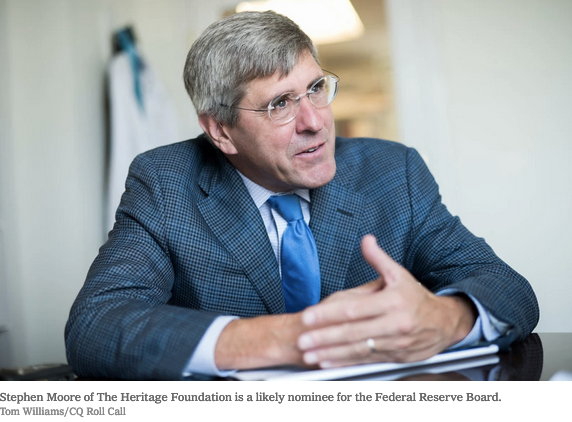Evidence has a well-known liberal bias. And that, presumably, is why conservatives prefer “experts” who not only consistently get things wrong, but refuse to admit or learn from their mistakes.
There has been a lot of commentary about Stephen Moore, the man Donald Trump wants to put on the Fed’s Board of Governors. It turns out that he has a lot of personal baggage: He was held in contempt of court for failing to pay alimony and child support, and his past writings show an extraordinary degree of misogyny. He misstates facts so much that one newspaper editor vowed never to publish him again, and he has been caught outright lying about his past support for a gold standard. Oh, and he has described the cities of the U.S. heartland as “armpits of America.”
But it’s also important to put Moore in context. Until he decided that the Fed should roll those printing presses to help Trump, he was part of a fairly broad group that advocated tight money in the aftermath of the global financial crisis. This group bitterly criticized both the Fed’s low interest rates and its efforts to boost the economy by buying bonds, so-called “quantitative easing.” Its members warned that these policies would lead to runaway inflation, and seized on a rise in commodity prices in 2011-12 as the harbinger of an inflationary surge.
Meanwhile, economists at the Fed and elsewhere argued that there was no inflationary risk given the depressed state of the economy, and that “core” inflation, which excludes volatile food and energy prices, was a much better indicator of inflationary pressure than commodity prices.




